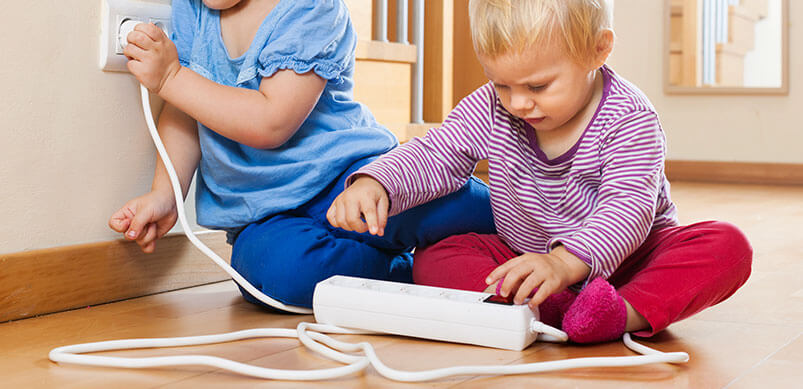
How to keep kids safe around your household appliances
May 26, 2021 | Appliance Safety Advice & Recalls | No comments
Children and electricals do not go together! That’s why it’s so important to know the do’s and don’ts when it comes to household appliance safety.
Whether you’re preparing for your new arrival, your kids are at that inquisitive age or you are starting to teach your teens about household safety, here are a few tips on how to keep your kids switched on about electrical safety in every room of your home.
Kitchen

The majority of your appliances are probably located in the kitchen (and so are the kid’s snacks!) This is why you should take extra care when operating and leaving appliances and electricals in this room.
- Where possible, keep appliances turned off when not in use. Of course, this doesn’t count for items such as fridges that need to be kept working.
- Never leave your appliances such as washing machines, dishwashers or tumble dryers running when you’re not in the house.
- Never leave cables within reach of children, especially if they are attached to hot items such as irons or kettles.
- Cables should never be placed on or near the cooker.
- Make sure you unplug appliances before cleaning them.
- According to Which?, faulty appliances account for 60 house fires a week in the UK. Be sure to keep your appliance cleaned and maintained to avoid any risks. Check out our appliance maintenance advice to ensure yours remain safe.
Living Room
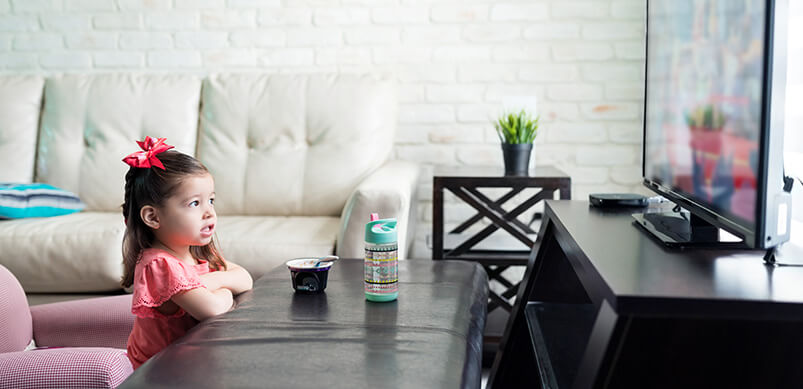 The living room is where children go to watch TV, play games and enjoy food and drink, so it’s an important spot to put in place some electrical safety rules:
The living room is where children go to watch TV, play games and enjoy food and drink, so it’s an important spot to put in place some electrical safety rules:
- Never place lit candles on top of electrical items.
- Never overload an adapter with TVs, DVD players etc. in the same one. It can overheat and cause fires.
- Don’t let leads from electrical items trail across the floor.
- Keep drinks and liquids away from electrical items.
- Never leave an unconnected appliance cord, such as phone chargers, plugged in and switched on. Young children may be tempted to put the end of the cord in their mouths.
- Never plug an extension cord into another one, this is known as ‘daisy chaining’ and increases the risk of overheating substantially.
Bedrooms
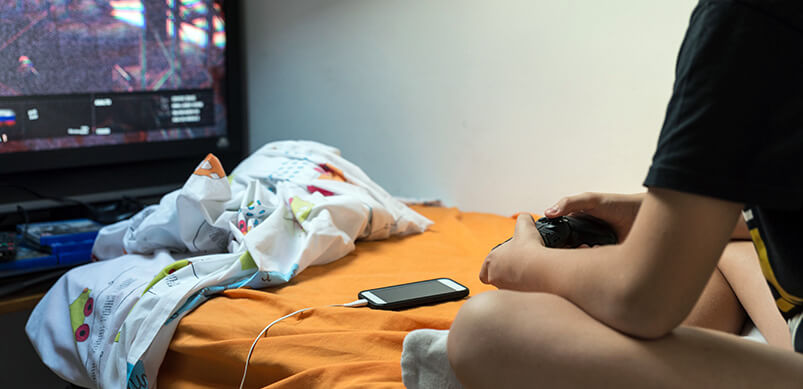 According to EC4U, Children’s rooms now have an average of 10 electrical items, a 10% increase on what their parent’s generation had. Here are some tips on how to keep your children safe when using electricals in their bedrooms.
According to EC4U, Children’s rooms now have an average of 10 electrical items, a 10% increase on what their parent’s generation had. Here are some tips on how to keep your children safe when using electricals in their bedrooms.
- Never leave anything plugged in and charging while you sleep.
- Never charge your phone under your pillow.
- Never purchase fake phone chargers. Stick to your manufacturer makes.
- Keep drinks away from TVs, DVD players, stereos, speakers, computers, games consoles and anything else electrical.
- Always turn off and unplug these items before you go to sleep.
Bathroom
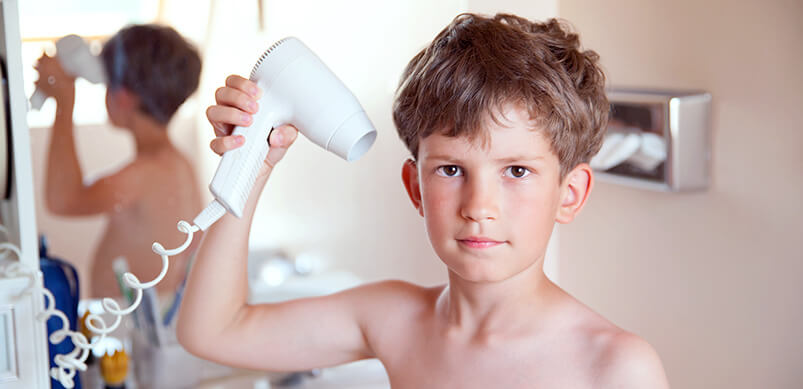
Water and electricity are a dangerous combination. Water is an excellent conductor, so it can be extremely dangerous if you come in contact with both. Taking a few safety measures in the bathroom will prevent harm to you and your children.
- Never use or take plugged-in electrical items in the bathroom.
- Never touch electrical things with wet hands.
- Always dry children completely after a bath or shower before they go near electrical items or switches.
Garden

Garden appliances with sharp blades such as lawnmowers and hedge trimmers can be extremely dangerous alone without the added electrical danger. Be sure to keep them away from children and take extra precautions to ensure their safety.
- Always use an RCD (Residual Current Device) when using garden appliances such as lawnmowers and hedge trimmers.
- If your garden appliances are kept in your garage, ensure children do not have access to them without an adult present.
General Electrical Safety
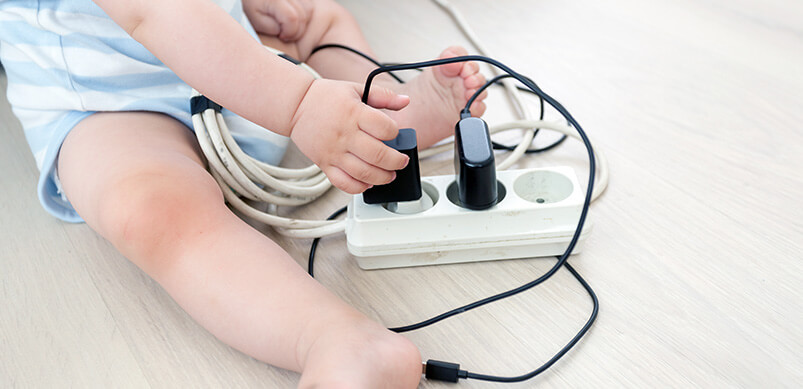
- Check electrical leads for damage like fraying or cracking. Kids love chewing things and electrical cables are no exception.
- Keep small objects out of reach. Children tend to place them into the sockets.
- Cover open sockets that are within a child’s reach. Most kids tend to stick fingers into the outlet, which may be risky.
- Socket blanking plugs tend to be effective, but don’t solely rely on them for your child’s safety purpose.
- Hold the plug, not the cord, when unplugging something to avoid damaging the cord.
- Do not pinch cords in windows, doors or under furniture.
What To Do In The Event Of An Electric Shock
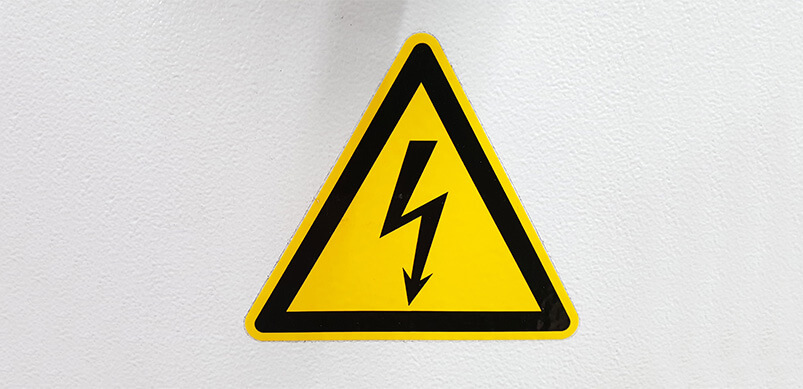
Fortunately in the UK, cases of children being electrocuted in the home are rare. However, it’s always good to know what to do, should this ever happen to you.
- Turn the power off the appliance before touching the person – this could result in you getting electrocuted too.
- If you can’t reach turn the power off for any reason, push the person away from the source of electricity with a non-conductive implement or item such as plastic or wood.
- If they are conscious, ring an ambulance or take them to a minor injuries unit depending on the severity of the shock.
- Do not use oils or ointments to cool their burns.
- If they are unconscious, check for a pulse, call an ambulance and carry out CPR if required.
As well as taking measures to keep on top of appliance maintenance, you’ll want to make sure they are fully safe by keeping an eye on appliance safety recalls too. Take a look at our complete guide to appliance recalls to find out what to do if you suspect your appliance has a safety issue.
If your appliances have developed any faults or need parts replaced, you can fix them yourself. Head over to our Advice Centre which has everything you need to diagnose, repair and maintain your household appliances.
Tags: appliance advice, appliance safety, Electrical Safety, Home Safety

